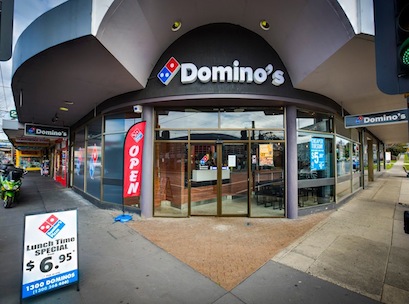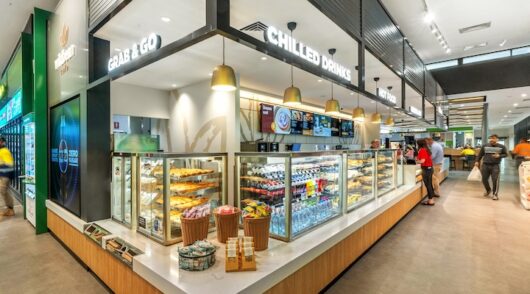 An award-winning Domino’s franchisee in Queensland is taking the brand to court, following concerns the pizza chain provided misleading information regarding a proposed territory split with a second store.
An award-winning Domino’s franchisee in Queensland is taking the brand to court, following concerns the pizza chain provided misleading information regarding a proposed territory split with a second store.
Domino’s Pizza Surfers Paradise franchisee, Tim Yervantian and his company PSI Pizza have filed a multi-million dollar claim against the franchisor in the Federal Court, alleging a breach of the franchise code of conduct.
Yervantian, who has been part of the Domino’s network for 18 years, as both a worker and franchisee is seeking damages relating to misrepresentations by Domino’s that his Surfers Paradise store would make $100,000 in sales per week.
“Prior to the signing of the SFA for the Surfers Paradise store, the respondent knew that it intended to introduce a $4.95 all day every day price strategy for pizzas (“Price Point”),” the statement of claim said.
“The respondent failed and/or neglected to inform the applicants of the proposed price point and the likely effect of it on the workload, store set-up, sales and income of the applicants.”
The statement of claim also alleges that once issues were raised by Yervantian, the stores under his operation began failing company-conducted audits as punishment.
“The audit of 25 June 2018 resulted in a 90 per cent pass grade. The audit of 9 July 2018 resulted in the applicants’ operation being given a “fail” grade in food safety and hygiene.”
“The respondent used the right to audit in order to pressure and/or punish the applicants and/or otherwise not in good faith.”
Yervantian said the practices employed by Domino’s had left him and many other franchisees in the network financially bereft.
“Work-life balance as a franchisee in Domino’s has become dire, it does not exist anymore. Most franchisees work up to 90 hours a week often just to stay afloat which leads to franchisees cutting corners in their operations just to survive,” he said.
“Being a Domino’s franchisee has ruined me, not just financially, but mentally and physically as well, and I am not alone.”
“There is so much intimidation and fear within this company which keeps the truth of our reality hidden, my hope in taking this action is that it will encourage franchisees to stand up for their rights as invested business partners to get their fair share of the success they have work so hard to create.”
Domino’s has denied the allegations, stating that the brand had not been served with any formal legal proceedings.
“The company rejects those claims and will defend the proceedings,” Domino’s told Inside Retail in a statement.
This isn’t the first time Domino’s store-split practices have been under the microscope this year, with several submissions to the parliamentary inquiry into the franchising code of conduct calling for further action.
Store splits are common practice in franchising, when a franchisee cannot fully service the area it operates in. The franchisor will open a second store with the permission and agreement of the franchisee in order to more completely do business within the region.
“By the time one of my store reached break even, Dominos opened new store; was outside my legal territory but still was very close to impact my stores sales. How could franchisor be just obsessed and self-focus(ed) just to open new stores, when existing and adjacent store never made profit?” one submission outlined.
Another alleged that Domino’s threatened that franchisees who did not agree to a location split would lose their store.
Domino’s has vehemently rejected the accusations outlined in both parliamentary submissions and those reportedly made by Yarvantian.
“The company would further like to add that, subject to discrete contractual exclusions, during the period of the sub-franchise agreement neither Domino’s corporate stores, nor other Domino’s franchisees, may open another store in that territory. This provides franchisees certainty about their investment as the number of households in their territory cannot, without the franchisee’s agreement, be decreased throughout this term.”
Domino’s securities had fallen approximately 10 per cent to 40.07 cents per share on Tuesday, compared to before the allegations, with shares at 44.1 cents per share on Wednesday last week.
Access exclusive analysis, locked news and reports with Inside Retail Weekly. Subscribe today and get our premium print publication delivered to your door every week.






